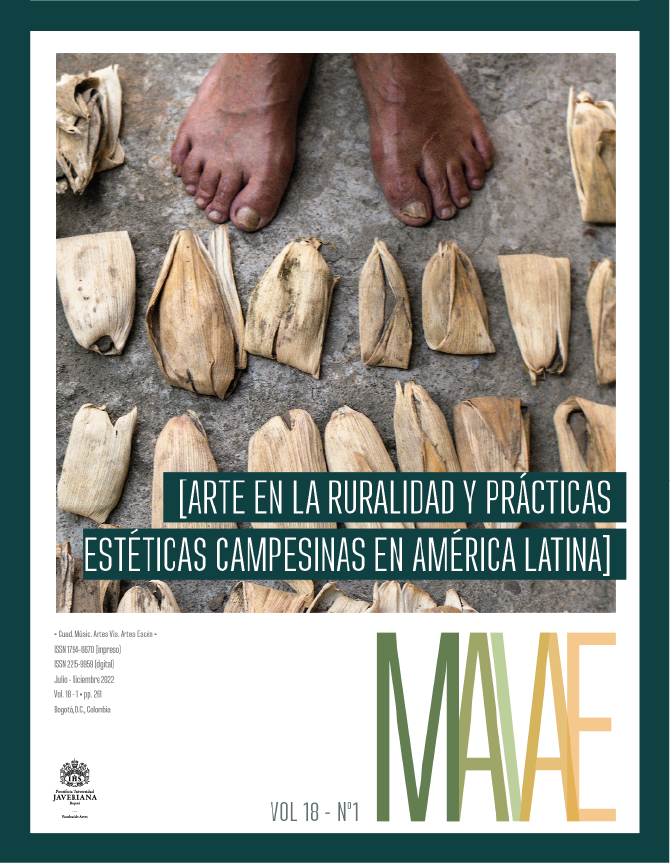Abstract
As a tribute to Máximo Jiménez, who died recently, a musician, composer, member of ANUC (National Association of Peasant Users) and a committed social leader, I revise my musical practice when I used to accompany him as a caja player (a typical drum) in order to recognize in his songs and records a discourse —in the form of vallenato song— of resistance and social complaint for abuses undergone by the peasants, which is an expression opposite to the traditional discourse expressed in this musical genre. I start by outlining the context of social and economic conditions of the Caribbean Coast since the middle of the 20th century in order to evince the scenario of precapitalism (both feudalist and enslaving) in the plantations and estates. Next, I highlight the work of the ANUC that makes visible this situation, denounces the abuses by the estate owners and the complicity —or absence— of the government and, finally, fosters the reconstruction of the collective memory through a research-participatory action (RPA) with Orlando Fals Borda. This effort provides a feedback to the artistic practice of the ANUC peasants. From their assorted musical productions, I chose the record El indio del Sinú by Máximo Jiménez to unveil his conceptual intent, explore his songs and study them under the criteria and categories of the Critical Discourse Analysis, study the record cover to uncover its symbolic content, and then highlight the importance of this musical production for the vision of the ANUC that seeks to systemically return the knowledge to the community. I conclude with an acknowledgement to Victor Negrete in an interview and present herein some statistics about repairs. I present the recognition by the State that the elites in the Caribbean Coast did such abuses and that the ANUC members were persecuted, including Máximo Jiménez himself and his family, after denouncing such abuses in their vallenato songs.
This journal is registered under a Creative Commons Attribution 4.0 International Public License. Thus, this work may be reproduced, distributed, and publicly shared in digital format, as long as the names of the authors and Pontificia Universidad Javeriana are acknowledged. Others are allowed to quote, adapt, transform, auto-archive, republish, and create based on this material, for any purpose, provided the authorship is duly acknowledged, a link to the original work is provided, and it is specified if changes have been made. Pontificia Universidad Javeriana does not hold the rights of published works and the authors are solely responsible for the contents of their works; they keep the moral, intellectual, privacy, and publicity rights.
Approving the intervention of the work (review, copy-editing, translation, layout) and the following outreach, are granted through an use license and not through an assignment of rights. This means the journal and Pontificia Universidad Javeriana cannot be held responsible for any ethical malpractice by the authors. As a consequence of the protection granted by the use license, the journal is able to publish retractions or to correct information already published. Publishing contents in this journal does not generate royalties for contributors.


